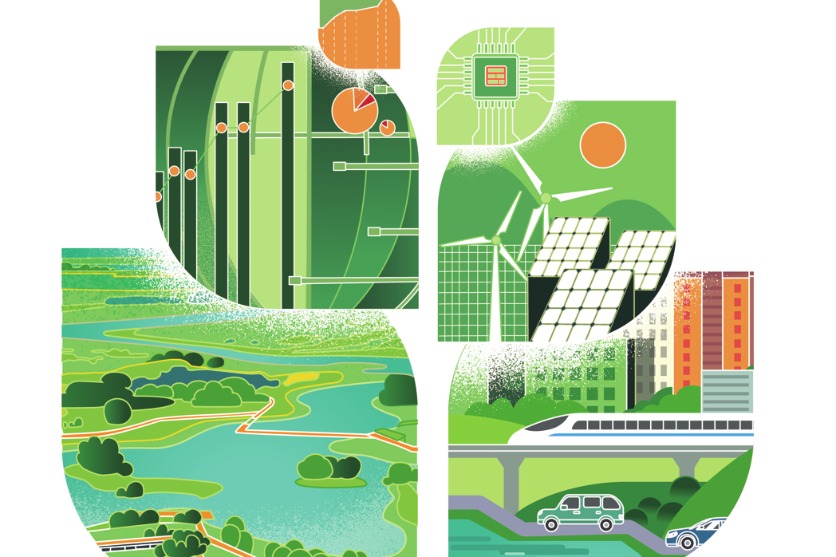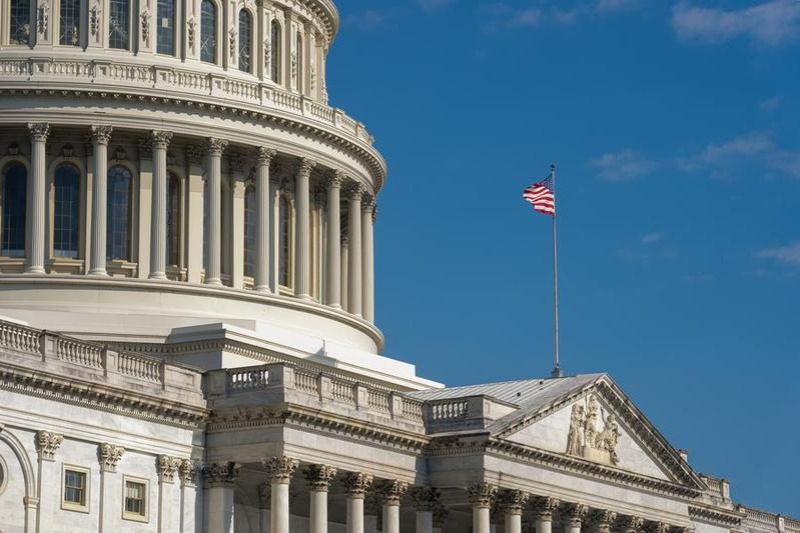Refocusing on collective action


China is an important torchbearer for global climate governance within the G20
"Climate change and the Sustainable Energy Transition" is a major topic at the 2022 G20 Summit to be held in November in Bali, Indonesia. Since the 2015 Paris Agreement and the 2016 China Hangzhou G20 Summit, the focus on global climate and energy transition in the G20 governance system has shown and continues to show an upward trend, boosting the confidence of the international community in dealing with the increasingly complex climate-energy-environmental nexus.
Particularly, the G20 Rome Leaders' Declaration called for efforts to limit the increase in global average temperatures to 1.5 C above the pre-industrial level, contributing to the success of the Glasgow Climate Pact.
Starting in 2008, the G20 Summit has served as a main forum for global governance. G20 members contribute 85 percent to the global GDP, 80 percent to global trade, account for two-thirds to the world's population, and 80 percent to the world's carbon emissions. As the world's major consumers of energy, the G20 has significant global environmental and climate governance responsibilities and capabilities. Therefore, the G20 global climate governance system has become a leading and coordinating mechanism for global climate governance outside the United Nations, including major powers and focusing on both developed economies and emerging markets, and G20 multilateral activities are a set of collective efforts to find solutions for win-win, effective and proactive efforts for global climate governance. Nowadays, major powers play a key role in global climate governance. A coordinated global climate governance system with major powers in it, especially Western and emerging major powers, will better straighten out the responsibilities and interest mechanisms for global action.
The G20 global climate governance has continuously expanded the field of international cooperation, improved the international mechanism, and produced continuous results, demonstrating the effectiveness of the G20 global climate governance system and making G20 contributions to global climate governance. In 2009, the G20 Summit adopted a resolution to eliminate fossil energy subsidies, becoming a key node in the global climate governance process. As an important forum for setting the global economic agenda, G20 meetings at different levels have successively built various energy focus mechanisms to deal with emergencies, proposed a carbon circular economy to achieve a cleaner and more sustainable energy system, and focused on decarbonized energy transformation to take cooperative governance actions, especially since the outbreak of the COVID-19 pandemic in 2020. The G20 Summit in Riyadh in 2020 reached a consensus on accelerating the promotion of the carbon circular economy and provided a guide for a carbon circular economy. The carbon circular economy approach is based on the"4R" framework, namely, reduce, reuse, recycle and remove, which adheres to achieving a cleaner and more sustainable development. The G20 Rome Leaders' Declaration issued at the G20 Summit mentioned that efforts should be made to limit the increase of global average temperature to 1.5 C above the pre-industrial level. This commitment is also regarded as an important basis for the 26th Conference of the Contracting Parties to the UN Framework Convention on Climate Change (COP 26).The 2021 Summit was also built on the"3E+S mechanism" (energy security, economic efficiency and environment plus security) with the aim of promoting the popularization of global energy transformation technology.
However, new challenges are emerging from the change of leadership. First, geopolitical games have become more prominent in the changing international power structure, and the risk of major powers sliding into the "Thucydides trap" — a clash when a major power feels threatened by the emergence of a new power — has increased dramatically as strategic mutual suspicion and strategic competition in relations between major powers in the G20 have become more pronounced. Some developed countries increasingly regard new emerging powers as strategic competitors. They tend to maintain structural advantages through beggar-thy-neighbor competitive policies, and adopt the strategy of encirclement in the development field to constantly squeeze the space for global climate governance cooperation.
Second, the G20 also contains key energy producers, who produce almost 70 percent of energy in the world. As G20 members include not only energy producing powers but also energy consumers, the fluctuation of oil prices since 2020 brings increasing risks to the security of global energy and climate governance. These challenges also create the disagreements between fossil fuel producers and other major economies, and then generate challenges and opportunities for the G20 to lead global energy governance.
Third, the imbalance of leadership and geopolitical competition in the G20 structure may lead to some kind of public goods deficit. In particular, the rising geopolitical competition between the United States and Russia is now moving the G20 away from being the leading global climate coalition. How to solve the deficit of global public goods under the "common but differentiated responsibilities" principle has become the main challenge facing the current global climate governance.
China, as the largest developing country in the world, represents the interests of emerging economies in the G20 and the rest of the developing world, which ought to actively coordinate the efforts to resolve the conflicts between emerging markets, developing countries and traditional Western energy leaders, as well as energy producers and consumers, so that the G20 can truly become an effective platform for coordination and consultation on global energy governance and jointly provide global public goods. China needs to be actively engaged in global climate governance through the G20 platform to advance the domestic and international green and low carbon transition. At the G20 Hangzhou Summit in 2016, China, as the host, initiated the G20 Action Plan on the 2030 Agenda for Sustainable Development. At the summit, China promoted the Paris Agreement into effect, launched the Green Finance Study Group to formulate a joint action plan on climate and energy, as well as advanced the G20 collective move on development strategies for reducing greenhouse gas emissions over the long term and intended Nationally Determined Contributions. China is an advocate, practitioner and promoter of the Global Development Initiative and the vision of a community with a shared future for mankind. China's participation in and leadership of the G20's global climate governance initiatives demonstrates its responsibility as a major country fighting for the cause of human progress.
China is implementing the Global Development Initiative and continuously improving the capacity building for global green development and green recovery within the G20 framework. For a sustainable and green future, China will seek to coordinate and guide the green competition and cooperation between major powers, actively provide environment public goods, reduce geopolitical conflicts and work to prevent the forming of an "iron curtain in the supply chain" between and among G20 countries, and ultimately promote global ecological conservation and the building of a community of man-nature harmony.
Yu Hongyuan is a professor and director of the Institute for Comparative Politics and Public Policy at the Shanghai Institutes for International Studies. Li Mingze is a research assistant at the Shanghai Institutes for International Studies. The authors contributed this article to China Watch, a think tank powered by China Daily. The views do not necessarily reflect those of China Daily.
Contact the editor at editor@chinawatch.cn.


































